Shopify vs Webador: Final verdict
Shopify and Webador both offer valuable website building solutions, but they cater to different needs and user bases.
-
Shopify (Overall Grade: 8.1/10)
is a powerful ecommerce platform designed for businesses looking to scale their online presence. It excels in providing advanced ecommerce features, robust security, and extensive integrations. Shopify’s comprehensive tools for product management, payment processing, and marketing make it the preferred choice for serious online stores. When comparing Shopify vs Webador, Shopify stands out for its professional design functionalities and superior customer support. -
Webador (Overall Grade: 6.3/10)
is a user-friendly website builder ideal for individuals and small businesses. It offers a range of customizable templates and an intuitive drag-and-drop interface, making it accessible for beginners. While Webador provides essential ecommerce features and affordable pricing, it lacks the advanced capabilities and scalability of Shopify. In the Shopify vs Webador comparison, Webador is best suited for users who prioritize ease of use and cost-effectiveness over advanced ecommerce functionalities.

|

|
|
|---|---|---|
|
Design functionalities & templates |
8.2 |
6.7 |
|
Ease of use |
7.5 |
8.1 |
|
Ecommerce |
9.2 |
7.0 |
|
Website Editors |
7.9 |
7.7 |
|
Product testing options |
8.1 |
6.0 |
|
Price |
8.2 |
8.8 |
|
Hosting quality |
9.0 |
7.8 |
|
Website speed optimization |
7.8 |
5.6 |
|
Plugins and integrations |
8.7 |
6.2 |
|
Marketing features |
8.8 |
3.9 |
|
Customer support |
8.6 |
6.5 |
|
Security |
9.0 |
7.4 |
|
AI capabilities |
7.9 |
3.4 |
|
User Management |
6.5 |
4.1 |
Which one is the best for ecommerce: Shopify or Webador?
 9.2
9.2
 7.0
7.0
Verdict
: Shopify is the superior choice for ecommerce, offering a comprehensive suite of tools and features that cater to growing businesses. Webador, while user-friendly and suitable for small-scale operations, lacks the depth and scalability of Shopify.
-
Shopify
: Known for its extensive ecommerce capabilities, Shopify is ideal for businesses looking to scale. It offers advanced inventory management, multi-channel selling, and detailed analytics, making it a robust platform for serious ecommerce ventures. With a score of 9.2, Shopify stands out in the Shopify vs Webador comparison for its superior ecommerce features. -
Webador
: This platform is perfect for small businesses and individuals who need a simple, easy-to-use website builder with basic ecommerce functionalities. While it offers essential features like product management and secure checkout, it doesn’t match Shopify’s advanced capabilities. Webador’s score of 7.0 reflects its suitability for less complex ecommerce needs.
Which one is the best for informational and business websites?
 6.8
6.8
 7.4
7.4
Verdict
: When it comes to creating informational and business websites, Webador has a slight edge over Shopify due to its user-friendly interface and a higher score in this category.
-
Shopify
: Shopify, scoring 6.8, is primarily an ecommerce platform, making it more complex for simple informational sites. While it offers professional templates and robust features, its focus on ecommerce can be overwhelming for users looking to create straightforward business websites. Shopify’s strength lies in its ecommerce capabilities, which may not be fully utilized for informational purposes. -
Webador
: Webador, with a score of 7.4, is designed for ease of use, making it ideal for individuals and small businesses looking to create professional-looking informational websites. Its drag-and-drop functionality and wide range of customizable templates allow users to design their sites without any coding knowledge. Webador’s comprehensive features, including SEO optimization and social media integration, make it a versatile choice for business websites. When comparing Shopify vs Webador, Webador stands out for its simplicity and user-friendly approach.
Shopify vs Webador: Detailed comparison
Design functionalities & templates
Design FunctionalitiesRepresents how well each platform allows for creative design and customization of websites.Score Components:
- Template Variety (30%): Range and quality of design templates.
- Customization (30%): Flexibility and options for design alterations.
- User Interface (20%): Ease and intuitiveness of the design process.
- Responsiveness (10%): Adaptability to different devices and screen sizes.
- Innovation (10%): Unique design features and tools.
 8.2
8.2
 6.7
6.7
🏆
Winner: Shopify.
If you’re looking for a platform that offers more professional and ecommerce-focused design functionalities and templates, Shopify is the preferred choice.
Shopify’s templates are sleek and professional, ideal for ecommerce sites. They offer a sophisticated look with a focus on online stores. While the free template selection is not large, Shopify’s premium theme store provides a variety of industry-specific options, offering advanced features for a strong brand presence.
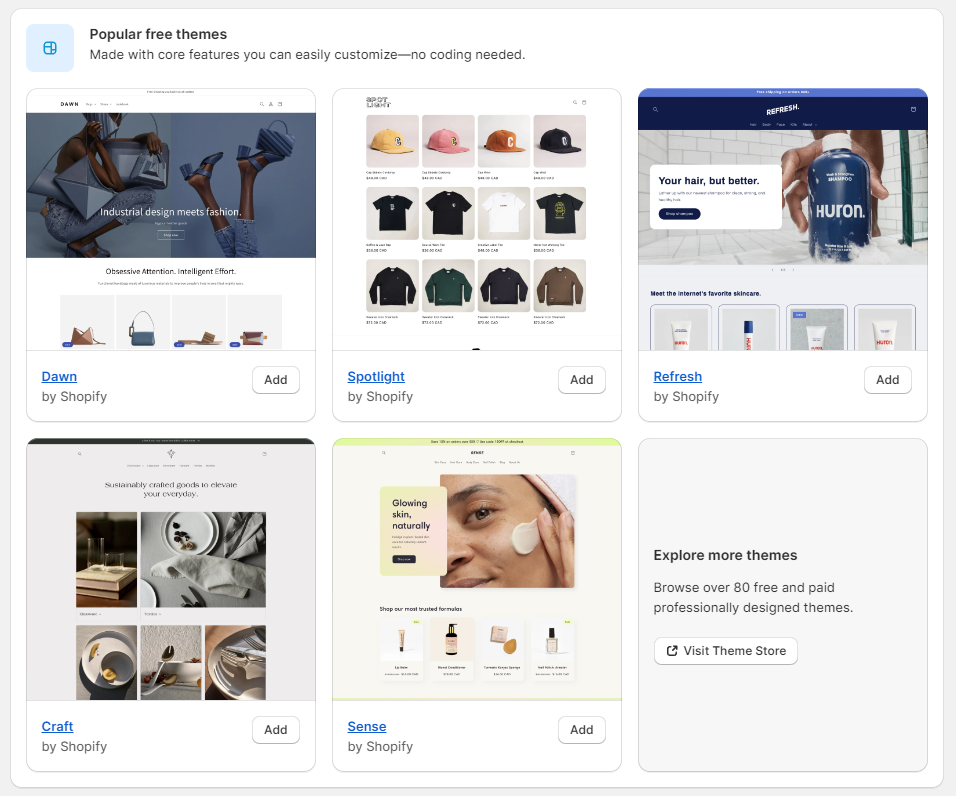
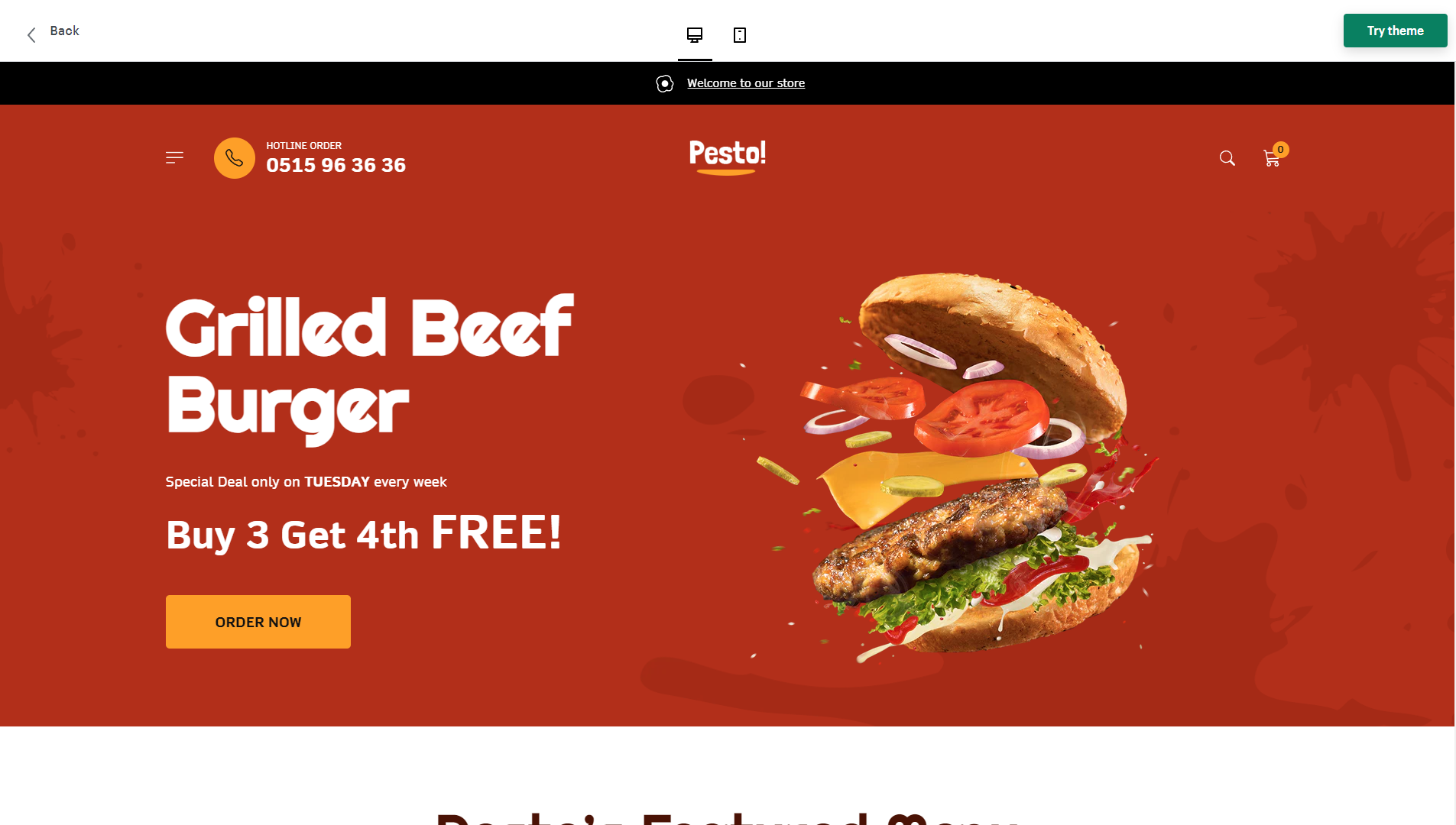
Compared to Shopify, Webador offers a wide variety of templates and designs for their website builder. They have over 100 professionally designed templates to choose from, catering to different industries and styles. Users can easily customize these templates to match their brand and preferences. Additionally, Webador regularly adds new templates to their collection, ensuring that users have access to the latest design trends. With such a diverse range of options, users can create a unique and visually appealing website that suits their needs.
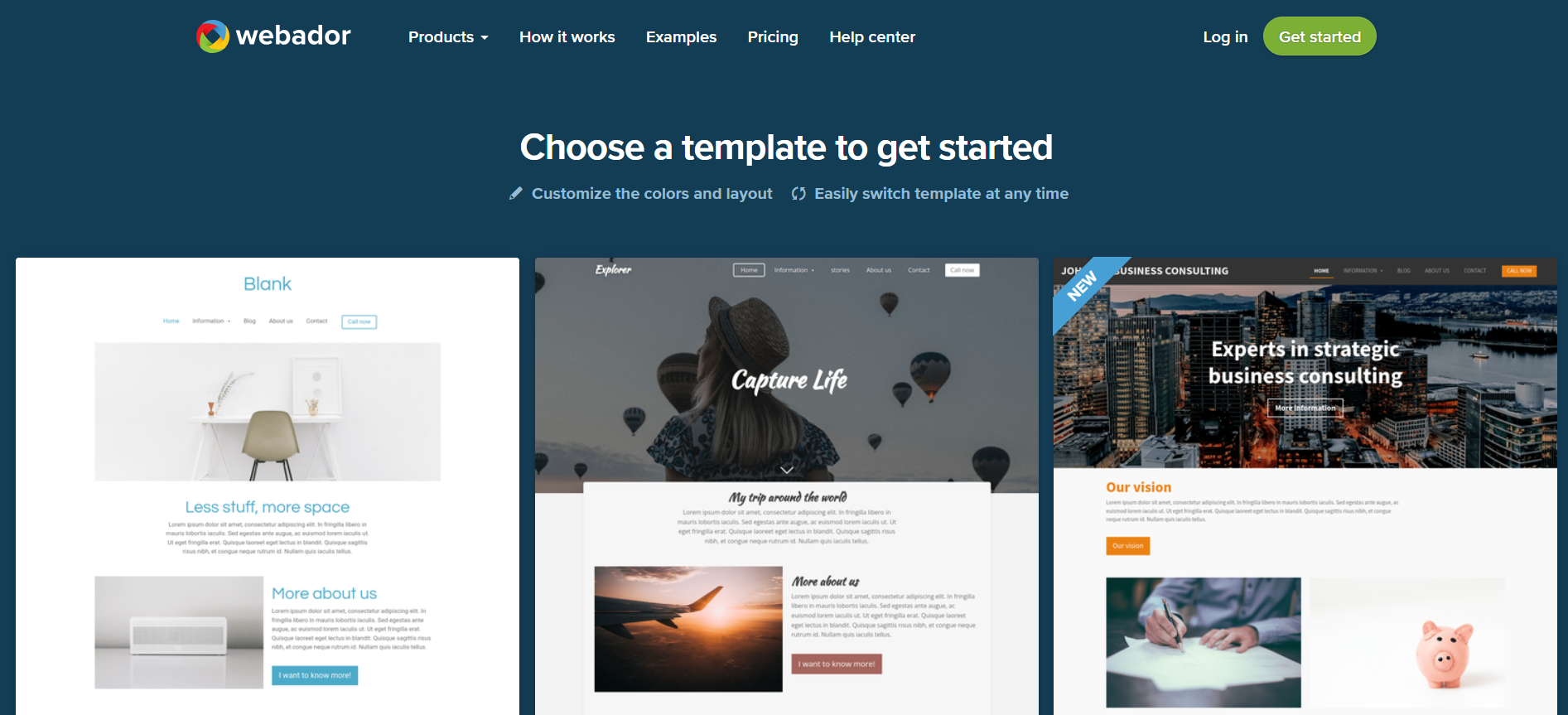

Get a head start on website creation with AI
Create a custom website tailored to your business needs 10X faster with 10Web AI Website Builder!
Ease of use
Ease of useReflects the platform’s overall user-friendliness.Score
Components:
- Learning curve (40%): Quickness and ease of getting started.
- Interface design (30%): Simplicity and intuitiveness of layout.
- User guidance (20%): Quality of tutorials and support.
- Flexibility (10%): Adaptability to various user skills.
 7.5
7.5
 8.1
8.1
🏆 Winner: Webador
. Scoring 8.1, Webador is designed for beginners and small businesses, offering an intuitive drag-and-drop interface that simplifies website creation. Shopify, with a score of 7.5, offers a robust platform but with a steeper learning curve, especially for those new to ecommerce. If ease of use is a priority, Webador is the clear winner in this category.
Learning Resources
🏆 Winner: Shopify
. While both platforms offer solid learning resources, Shopify goes a step further with its wide array of detailed tutorials and active community forums, making it easier for users to learn and adapt.
For ecommerce
EcommerceMeasures the platform’s effectiveness in supporting online business activities.Score Components:
- Ecommerce themes and templates (20%): Variety and design of templates.
- Product management (25%): Ease of managing and organizing products.
- Payment options (25%): Variety and convenience of payment methods.
- Ecommerce features (20%): Features for managing an ecommerce store.
- Integration (10%): Compatibility with external e-commerce tools and services.
 9.2
9.2
 7.0
7.0
Shopify is a leading ecommerce platform with a comprehensive set of features for online businesses. It offers tools for creating and customizing online stores, managing products, processing payments, and handling order fulfillment. On the other hand, Webador is a user-friendly website builder that also offers ecommerce features. These ecommerce capabilities allow users to create online stores, add and manage products, set up payment methods, and handle orders directly through their websites.

|

|
|
|---|---|---|
|
Ecommerce themes and templates |
8.2 |
6.5 |
|
Product page customization |
8.5 |
6.8 |
|
Payment processing and commissions |
8.8 |
7.0 |
|
POS capabilities |
8.1 |
5.0 |
|
Payment gateways |
9.5 |
7.5 |
|
Product numbers |
9.0 |
6.0 |
|
Additional ecommerce features |
9.1 |
6.5 |
Shopify ecommerce features:
- Comprehensive store builder
- Shopify Payments and other gateways
- Advanced inventory management
- Multi-channel selling
- Abandoned cart recovery
- Detailed analytics and reporting
Webador ecommerce features:
- Product Management
- SEO and Marketing tools
- Secure Checkout
- Shipping and payment options
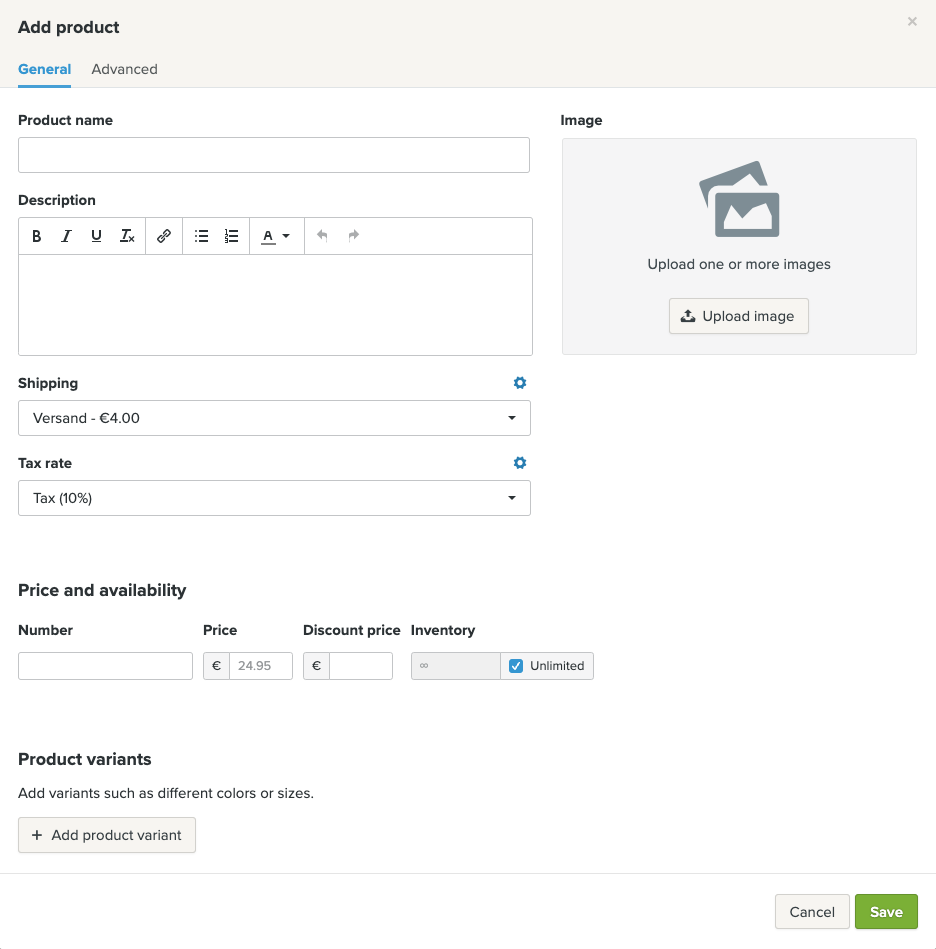
Ecommerce themes & templates
Shopify offers about 150 modern responsive themes for creating a virtual storefront, ensuring a good look on both desktop and mobile devices. While some themes are free, others cost between $170 to $380. In contrast, Webador offers a variety of online store templates that are easy to use, customize, and look great on any device. Their service is tailored for small business owners and requires no technical knowledge to start.
Product page customization
Shopify has a limit of three options per product, totaling 100 unique variations. This limit may not pose a significant constraint, and it is suggested that for products with numerous options, creating separate listings on Shopify can be a more manageable approach. On the other hand, Webador offers extensive options for customizing product pages on ecommerce websites, including the ability to add detailed product information, images, and personalization options through custom fields.
Payment processing
Shopify offers payments with typical charges of 2.9% + 30¢ per online transaction on basic plans, and lower fees for higher-tier plans. However, it adds extra fees for using other payment gateways. Shopify Payments is Shopify’s own payment processing gateway. It allows merchants to accept credit card payments directly on their store without having to integrate third-party payment providers. This simplifies the payment process, reduces transaction fees, and streamlines the handling of finances. In contrast, Webador integrates with major payment providers like Stripe and PayPal, facilitating a wide range of payment options for online stores, including major debit and credit cards, iDeal, Bancontact, and Klarna ‘pay later’ options across over 190 countries and in 25 currencies. The platform enables easy setup for these payment methods, catering to both private webshops and businesses aiming for international transactions without requiring detailed company information for setup. Additionally, PayPal integration offers a fast checkout option, enhancing the customer experience by streamlining the payment process.
Website Editors
Website EditorsEvaluates the platforms’ website building and editing capabilities.Score Components:
- Customization tools (40%): Range and power of editing features.
- Editor usability (30%): User experience within the editor.
- Design flexibility (20%): Freedom in layout and design changes.
- Update and maintenance ease (10%): Simplicity of updating and maintaining the site.
 7.9
7.9
 7.7
7.7
🏆
Winner: Shopify
. Shopify, with a score of 7.9, excels in providing a streamlined, ecommerce-focused editing experience. It’s particularly beneficial for users who prioritize efficient management of online stores. The editor is straightforward, making it easy to add products, manage inventory, and set up payment methods. Shopify’s editor is optimized for sales and business growth, with built-in tools specifically designed for ecommerce businesses.
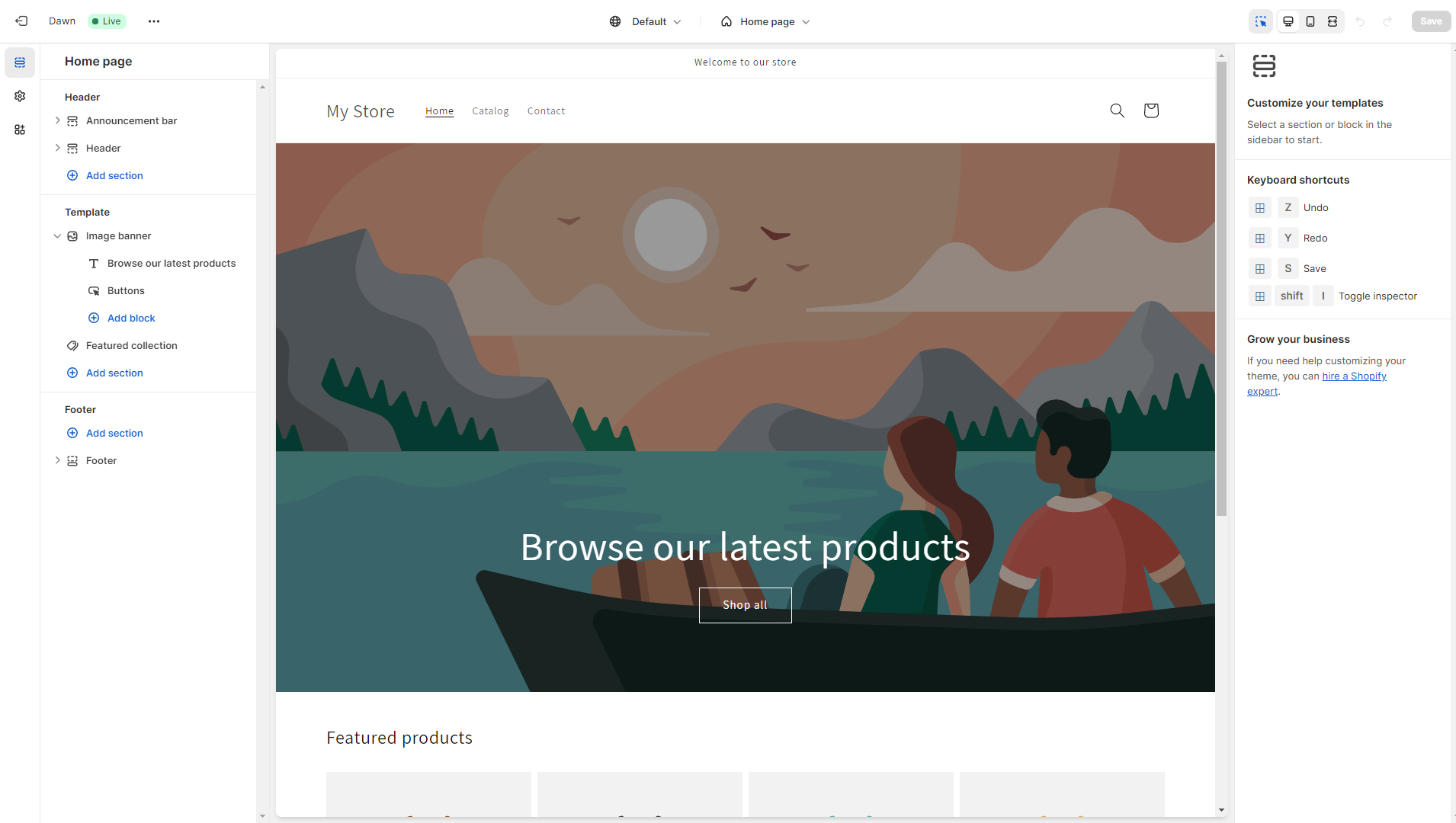
Webador’s editor, scoring 7.7, offers a user-friendly, drag-and-drop interface that simplifies website creation, making it accessible for individuals and small businesses without technical expertise. It features customizable templates and elements, responsive design for optimal display on all devices, and tools for SEO optimization and ecommerce to enhance online presence and functionality.
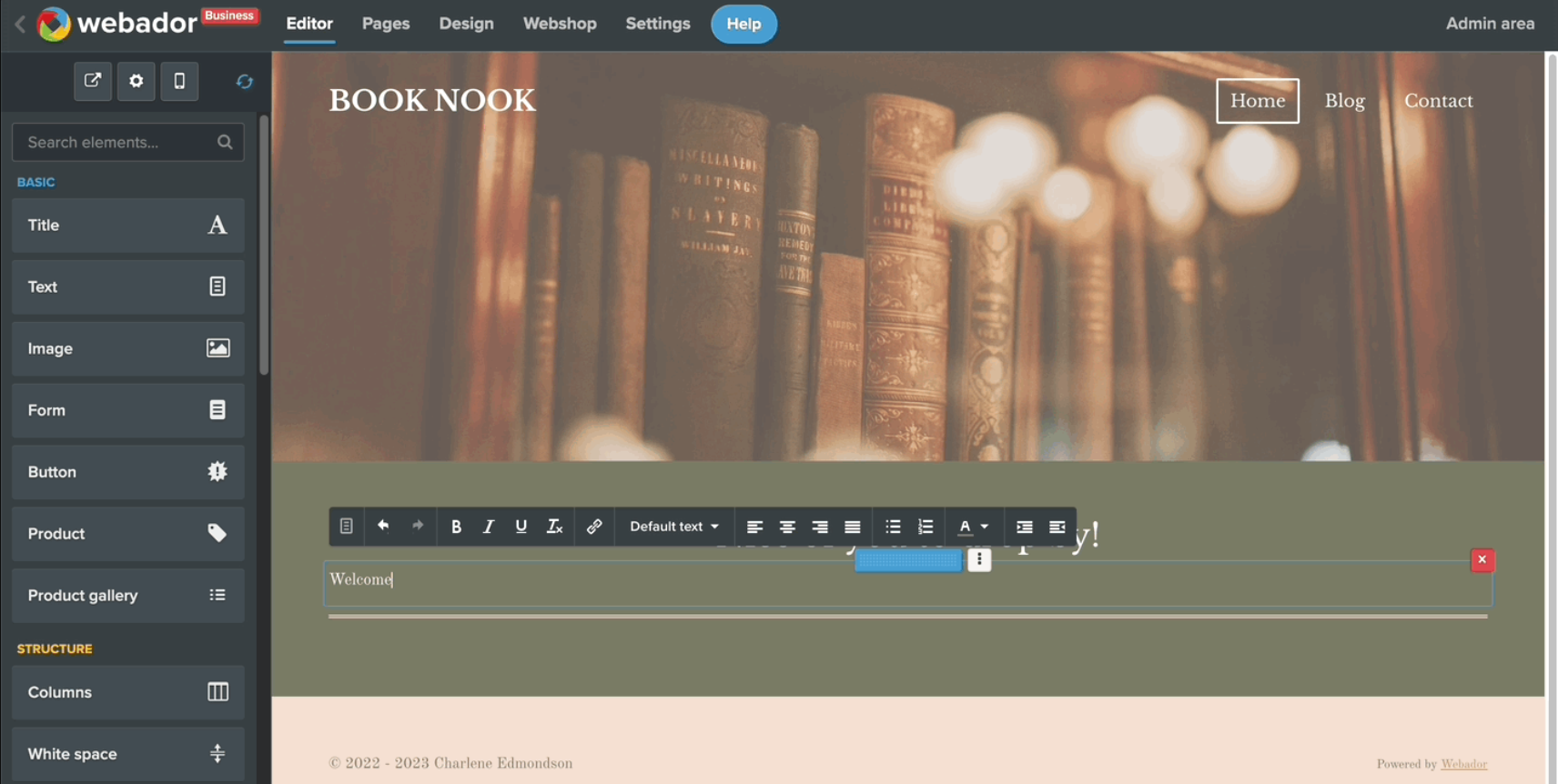
Mobile editor/app
 8.0
8.0
 4.5
4.5
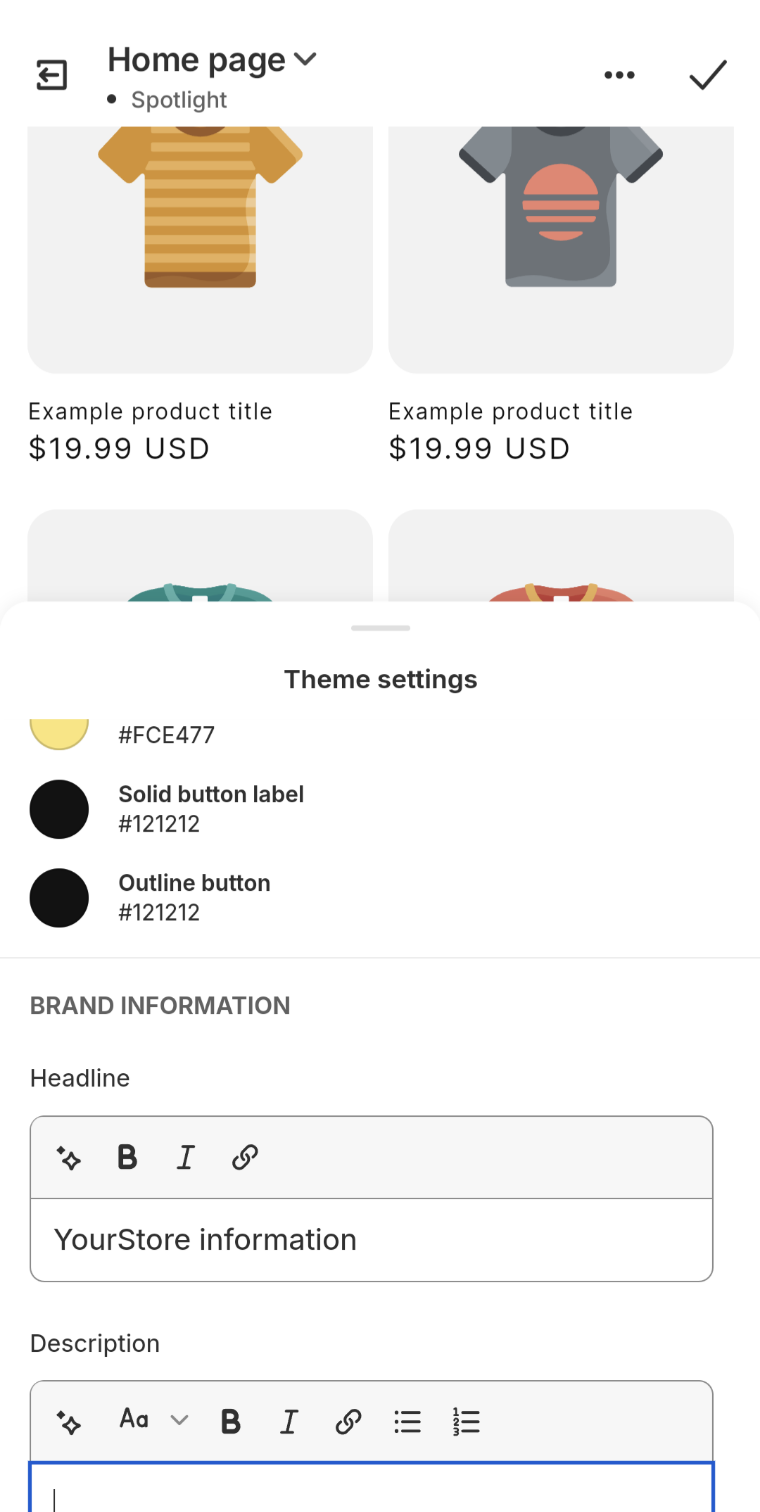
🏆
Winner: Shopify
. Both Shopify and Webador offer mobile editing capabilities, but they cater to different needs and skill levels. Shopify has a dedicated mobile app that allows users to manage their online store from their mobile device. This feature enables the addition, removal, editing, and rearrangement of content on the store’s website, offering convenient on-the-go adjustments to the store’s appearance and layout.
On the other hand, Webador does not have a mobile app. Users can edit their website using the browser version, but with limitations compared to the desktop version. This lack of a dedicated mobile app and the limitations of the browser version result in a lower mobile editor score for Webador.
In summary, Shopify receives a higher rating due to its dedicated mobile app and the comprehensive editing capabilities it offers, while Webador’s lack of a mobile app and the limitations of its browser version result in a lower score.
Product testing options
Product Testing OptionsAssesses the options for trying out platform features before commitment.Score Components:
- Trial quality (40%): Extent and usefulness of the trial or free version.
- Feature accessibility (30%): How many features are available to test.
- Trial duration (20%): Length of the trial period.
- Ease of transition (10%): Smoothness of moving from trial to paid plans.
 8.1
8.1
 6.0
6.0
Overall Result
:
Shopify Wins
. Shopify scores 8.1, offering a 14-day free trial with access to all features, while Webador scores 6.0, offering a free plan with limited features. Shopify does not have a traditional money-back guarantee, but users can simply stop using the service after the trial period to avoid charges. Webador does not offer a money-back guarantee.

|

|
|
|---|---|---|
|
Free Plan |
No (14-day free trial) | Yes (Limited features) |
|
Trial Duration |
14 days | No trial |
|
Testing Premium Features |
All features during free trial |
Some features with free plan |
|
Money Back Guarantee |
No (14-day free trial) | No |
Price
PriceLooks at the cost-effectiveness and value for money of each platform.Score Components:
- Plan value (40%): What each pricing tier offers.
- Transparency and clarity (30%): Clearness of pricing structures.
- Flexibility of plans (20%): Range of options to suit different budgets.
- Hidden costs (10%): Additional expenses not included in the plan.
 8.2
8.2
 8.8
8.8
Webador offers more affordable options, but Shopify’s features are more refined, especially for larger-scale ecommerce operations.

|

|
|
|---|---|---|
|
Free |
No offering at this amount. |
Free ($0/month): Offers basic features suitable for individuals and hobbyists, including a .webadorsite.com address and all essential features. This plan allows to manage only 1 website and there is no limitation of number of pages offered. |
|
$0-$10 |
No offering at this amount. |
Lite ($6.45/month): Includes a domain, all features from the Free plan, and an ad-free website. Ideal for basic personal or small business websites. This plan allows to manage only 1 website and there is no limitation of number of pages offered. Value for price: 6.0 |
|
$10-$20 |
No offering at this amount. |
Pro ($11.30/month): Aimed at small business owners, this plan offers an online store with up to 10 products, a domain, and a mailbox. This plan allows to manage only 1 website and there is no limitation of number of pages offered. Value for price: 8.0 |
|
$20-$30 |
Shopify Basic ($29/month): Unlimited products, 2.9% + 30¢ card fee with Shopify payments, Extra 2% gateway fee without Shopify Payments, Abandoned cart recovery, Automated sales tax, Digital products, POS Integration, 2 staff accounts. Value for price: 8.0 |
Business ($22.50/month): Designed for ambitious professionals, offering unlimited online store products, a domain, an XL mailbox, and prioritized support among other advanced features. This plan allows to manage only 1 website and there is no limitation of number of pages offered. Value for price: 9.5 |
|
$70-$80 |
Shopify Standard ($79/month): Lower card fees (2.6% + 30¢), Gift cards, Professional reports, 5 staff accounts. Value for price: 8.5 |
No offering at this amount. |
|
$200+ |
Advanced Shopify ($299/month): Lowest card fees (2.49% + 30¢), Advanced report builder, Real-time carrier shipping, Up to 15 staff accounts Value for price: 8.8 |
No offering at this amount. |
location. As a result in rare cases the prices displayed here can differ from the ones you see on their
websites.
Hosting quality
Hosting
qualityExamines the reliability and performance of the hosting solutions.Score Components:
- Uptime (40%): Consistency and reliability of website availability.
- Speed (30%): Loading times and performance.
- Bandwidth and storage (20%): Sufficiency of resources provided.
- Data centers (10%): Quality and distribution of hosting infrastructure.
 9.0
9.0
 7.8
7.8
Winner: Shopify
. Shopify’s proprietary cloud-based hosting, with a 99.99% uptime guarantee and global data centers, is designed for high-traffic online stores. Webador, on the other hand, offers shared hosting with the same uptime guarantee but does not disclose information about its data centers. Despite this, Shopify’s specialized hosting services earn it a higher rating.

|

|
|
|---|---|---|
|
Do they offer hosting? |
Yes, included in all paid plans |
Yes, included in all paid plans, free plan with limited features |
|
Data Centers: |
5 globally: USA (Ashburn, Virginia; Santa Clara, California), Canada (Toronto, Ontario), Ireland (Dublin), and Singapore |
Webador doesn’t publicly disclose any information about its data centers |
|
Type of hosting: |
Proprietary cloud-based hosting |
Shared Hosting |
|
Uptime: |
99.99% |
99.99% |
|
Uptime Guarantee: |
Yes, 99.99% |
Yes, 99.99% |
Website Speed Optimization
Website Speed OptimizationEvaluates optimization of website loading timesScore Components:
- PageSpeed Score (30%): Google’s score indicating performance optimization.
- Loading Time (30%): The average time until a website is fully interactive.
- Mobile Optimization (15%): Optimization effectiveness for mobile devices.
- Resource Optimization (15%): Optimizing images, scripts, and other heavy resources.
- CDN Usage (10%): Use of CDN to enhance speed across geolocations.
 7.8
7.8
 5.6
5.6
🏆 Winner: Shopify
Both Shopify and Webador prioritize website performance and speed, but Shopify has a higher Website Speed Optimization score and provides more detailed information about its strategies and improvements.

|

|
|
|---|---|---|
|
Focus |
App optimization, Google AMP |
Code Minification, Caching, CDN, SEO optimization |
|
Performance Tools |
Google Lighthouse, PageSpeed Insights |
Not specified |
|
Key Strategies |
App efficiency, Theme optimization |
Code Minification, Caching, CDN, SEO optimization |
|
Load Times |
Varies widely, dependent on optimization |
Not specified |
|
Page Speed Scores Range |
Scores vary; influenced by apps, images |
Not specified |
|
Core Web Vitals Improvement |
Emphasis on LCP, FID, CLS improvements |
Not specified |
Shopify places a strong emphasis on website performance and page speed. Its approach to enhancing site speed includes app optimization by removing unneeded app code, conditionally loading apps, avoiding immediate pop-up displays, and incorporating app functionality directly into themes. Shopify also suggests utilizing Google AMP for faster mobile page loads. Analysis of Shopify sites showed a range of Shopify speed scores, with scores varying and influenced by apps and images. Shopify also emphasizes on LCP, FID, CLS improvements for Core Web Vitals.
On the other hand, Webador focuses on code minification, caching, CDN, and SEO optimization for speed optimization. However, there’s no data on Page Speed Scores and load times for websites built with Webador. Also, Webador does not publicly disclose specific information about improvements or strategies related to Core Web Vitals.
Get a head start on website creation with AI
Create a custom website tailored to your business needs 10X faster with 10Web AI Website Builder!
Plugins and integrations
Plugins and integrationsMeasures the range and effectiveness of additional plugins and integrations.Score Components:
- Variety of options (40%): Range of available add-ons.
- Integration smoothness (30%): Ease of integrating plugins into the site.
- Quality of plugins (20%): Functionality and reliability of the options.
- Custom integration capabilities (10%): Support for custom or third-party integrations.
 8.7
8.7
 6.2
6.2
🏆 Winner: Shopify.
With a score of 8.7, Shopify outperforms Webador, which scores 6.2. Shopify offers over 8,000 apps in its App Store, covering a wide range of functionalities, while Webador offers over 100 plugins. Shopify’s plugins and integrations enhance ecommerce by offering advanced sales, marketing, and payment options, streamlined shipping, sophisticated inventory management, improved customer service, in-depth analytics, seamless accounting integration, creative store design, mobile app support, enhanced security, multi-channel selling, product review tools, dropshipping and print-on-demand support, language localization, and accessibility improvements. On the other hand, Webador’s plugins enhance the functionality of the website by adding features such as ecommerce capabilities, social media integration, SEO optimization, and contact forms.
Shopify’s key integrations feature Oberlo for dropshipping, Klaviyo for email marketing, Yotpo for reviews, Printful for print-on-demand, Shopify POS for sales, Google Analytics for insights, Facebook Channel for social selling, ShipStation for shipping, QuickBooks for accounting, Privy for conversions, Smile.io for loyalty, SEO Manager, AfterShip for tracking, Spocket for products, and Gorgias for customer service, enhancing various ecommerce aspects. Webador offers a range of integrations including analytics tools, marketing platforms, payment solutions, social media tools, customer service options, and more. These integrations cater to various needs such as tracking user behavior, managing email campaigns, facilitating online transactions, enhancing social media engagement, providing customer support, and enabling automation and multimedia content hosting. Users can choose the integrations that best suit their specific goals and requirements. Integrations can be accessed directly through the website editor.
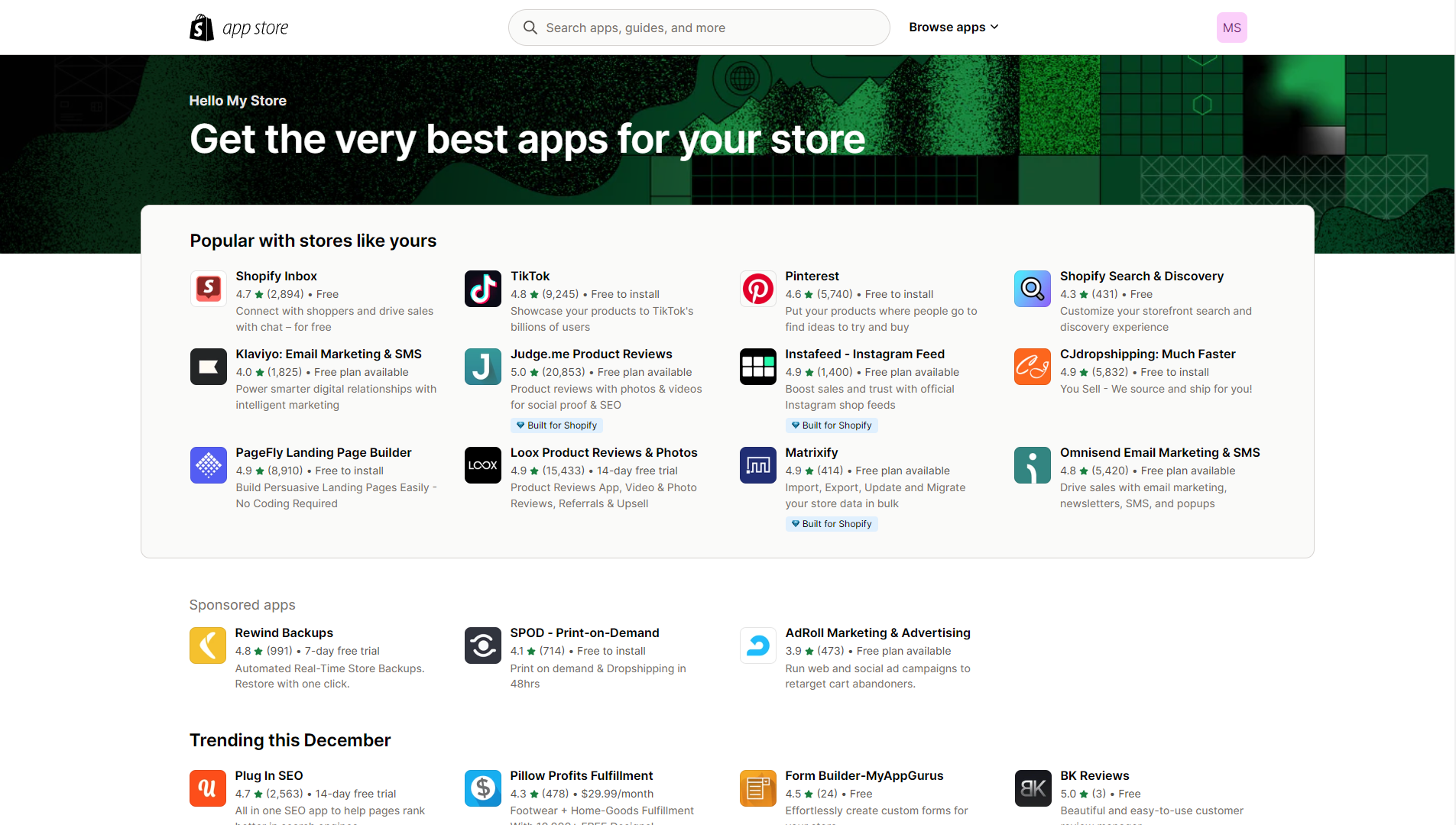
Marketing Features
Design FunctionalitiesRepresents how well each platform allows for creative design and customization of websites.Score Components:
- Template Variety (30%): Range and quality of design templates.
- Customization (30%): Flexibility and options for design alterations.
- User Interface (20%): Ease and intuitiveness of the design process.
- Responsiveness (10%): Adaptability to different devices and screen sizes.
- Innovation (10%): Unique design features and tools.
 8.8
8.8
 3.9
3.9
🏆
Overall Winner: Shopify
. Shopify stands out for its comprehensive ecommerce-focused marketing tools, especially in email marketing, analytics, and ad campaign management. Webador, while offering basic marketing features, lacks in email marketing and advanced analytics.

|

|
|
|---|---|---|
|
SEO Tools |
|
|
|
Email Marketing |
|
|
|
Blogging |
|
|
|
Social Media Integration |
Advanced integration for selling directly on social platforms |
Integrated social media buttons and features |
|
Analytics and Reporting |
Detailed analytics for in-depth insights |
Basic analytics for website traffic and engagement |
|
Ads and Promotions |
Google Ads integration; sophisticated ad campaign management |
Basic options focusing on offering discounts and sales |
Customer Support
Customer supportEvaluates the quality and availability of support options.Score Components:
- Response time (40%): Speed of support responses.
- Support quality (30%): Effectiveness and helpfulness of the support.
- Availability (20%): Range of support channels (phone, chat, email).
- Resource richness (10%): Quality of self-help and educational materials.
 8.6
8.6
 6.5
6.5
🏆 Winner: Shopify
. Comparing Shopify vs Webador, Shopify stands out with its 24/7 customer support available through chat, email, and phone. Shopify’s extensive community forums and clear tutorials further enhance the support experience, making it easier for users to find solutions quickly. Additionally, Shopify offers a dedicated support program for enterprise-level businesses, including a dedicated account manager and priority support.
Webador, on the other hand, provides customer support primarily through email, which they believe is the most efficient way to assist their customers. While Webador’s support team is responsive and their help center is available in multiple languages, the lack of telephone support and enterprise-level resources may be a limitation for some users. Overall, Shopify’s comprehensive support options and resources make it the superior choice in this category.
Security
SecurityLooks at the platforms’ security measures and data protection.Score Components:
- Data protection (40%): Safeguards for user and customer data.
- SSL and encryption (30%): Implementation of secure connections.
- Compliance (20%): Adherence to industry security standards.
- Regular updates (10%): Frequency of security updates and patches.
 9.0
9.0
 7.4
7.4
🏆
Winner: Shopify
. Shopify’s security measures are more comprehensive than Webador’s, earning it a higher security score. Shopify prioritizes data privacy and security through rigorous measures, including secure infrastructure, encryption, limited access, compliance with data privacy regulations, data minimization, user control and transparency, two-factor authentication, regular audits, and a dedicated incident response team. Shopify also ensures website security with SSL certificates, verifying website identity, and offering SEO benefits. Free SSL certificates are provided, with options for upgrades. The built-in Web Application Firewall filters and blocks threats, and users can add third-party firewalls for extra control and security.
Webador also prioritizes data privacy and security, but its measures are not as comprehensive as Shopify’s. Webador advises users to minimize data storage, employs secure HTTPS connections with SSL certificates for paid plans, and offers detailed guidelines on handling and deleting personal data. It emphasizes not collecting data from minors without consent and ensures data security through partnerships and the use of cookies and third-party services with a focus on user privacy. Webador’s website security measures include advising on the careful handling of personal data, offering functionalities for data management and deletion, and providing secure HTTPS connections with SSL certificates for paid plans. Webador also engages in regular security practices, including SSL encryption and penetration testing for vulnerabilities.
AI Capabilities
AI capabilitiesMeasures the effectiveness of AI-driven features and tools.Score Components:
- Automation efficiency (40%): Impact of AI on streamlining processes.
- Personalization (30%): AI-driven customization for users or customers.
- AI-Assisted design (20%): Role of AI in website design and functionality.
- Data analysis (10%): Use of AI in interpreting user data and analytics.
 7.9
7.9
 3.4
3.4

|

|
|
|---|---|---|
|
Personalized Design |
|
|
|
SEO Optimization |
AI-driven recommendations for better search engine visibility |
|
|
Customer Behavior Analysis |
Advanced analytics to understand customer preferences |
|
|
Sales Predictions |
AI-powered sales forecasting tools |
|
|
Inventory Management |
AI tools to assist in efficient inventory handling |
|
|
Content Generation |
AI-assisted content creation |
AI-assisted content creation |
🏆 Winner: Shopify
. Shopify, with a score of 7.9, utilizes AI mainly to enhance the ecommerce experience. Its AI features focus on customer behavior analysis, personalized shopping experiences, inventory management, and sales predictions. Shopify’s AI capabilities are more comprehensive and advanced compared to Webador’s.
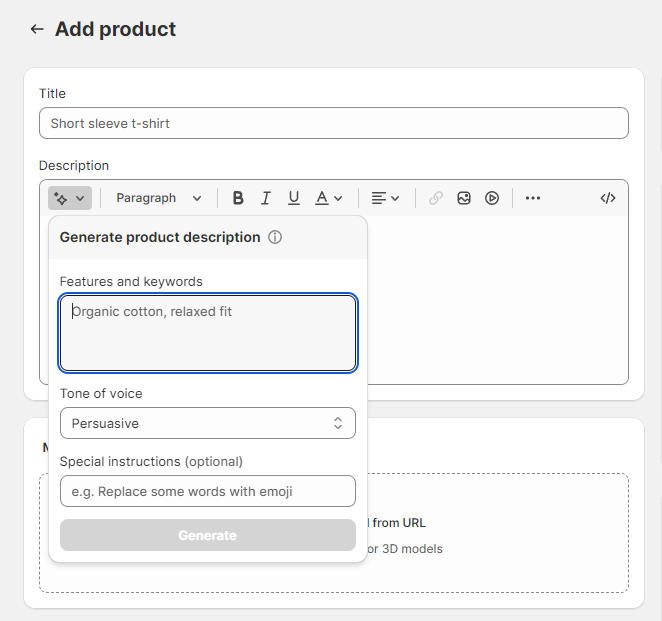
Webador, with a score of 3.4, has limited AI capabilities. Its AI features mainly focus on content generation to expedite the website creation process. However, compared to Shopify, Webador’s AI capabilities are less comprehensive.
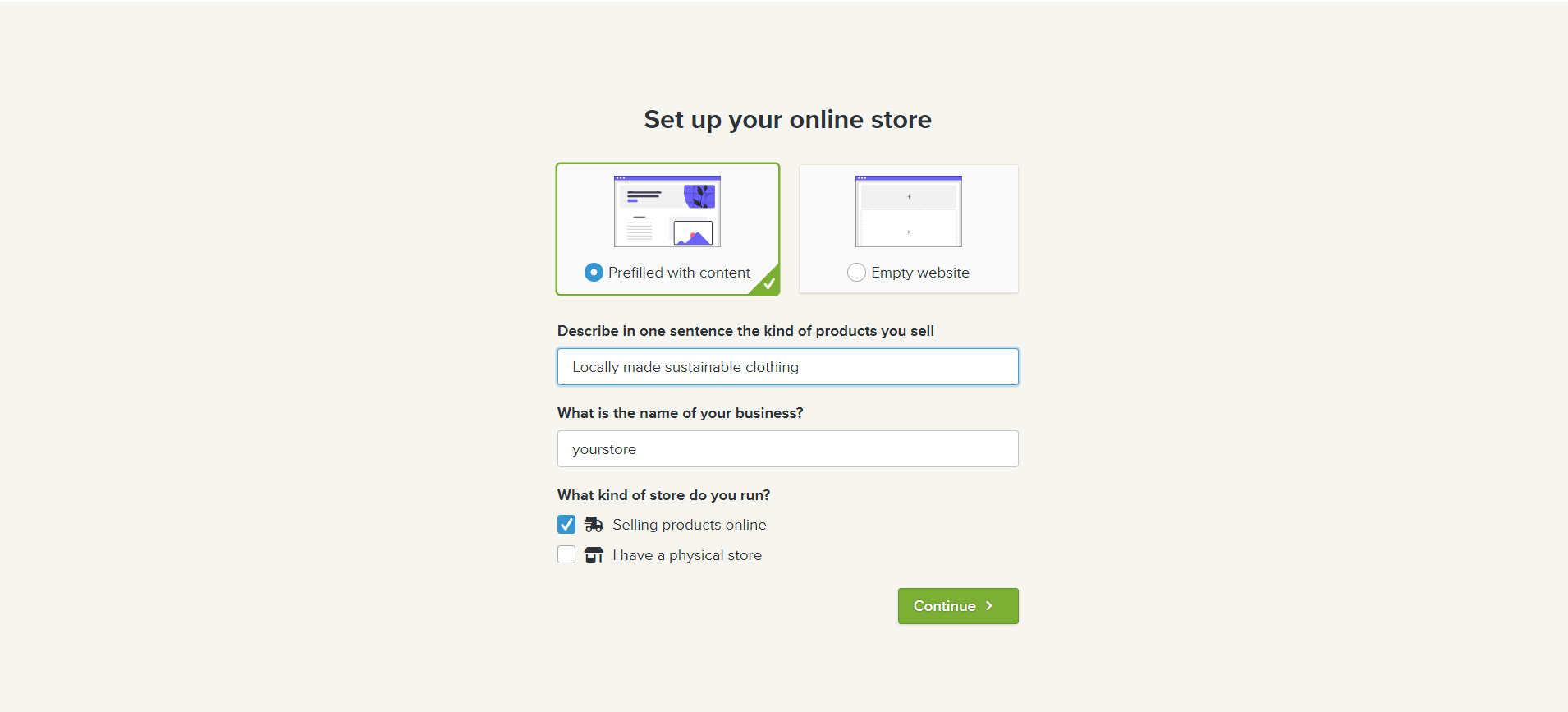
User Management
User ManagementAssesses the platforms’ capabilities in managing user roles, permissions, and accessibility.Score Components:
- Role Customization (40%): Flexibility in creating and defining user roles and
permissions. - Ease of Management (30%): User interface and tools for managing users.
- Access Control (20%): Effectiveness of access control measures for different user
levels. - Scalability (10%): Ability to manage a growing number of users efficiently.
 6.5
6.5
 4.1
4.1
🏆 Winner: Shopify
. Managing your online team with Shopify and Webador involves different approaches to website editing access.
-
Shopify enforces staff account limits based on plans, ranging from 2 to 15, with Shopify Plus offering unlimited
accounts. Collaborators with limited access are also an option. - Webador allows to have multiple contributors to the website on higher plans, however specific numbers and permissions are not available.
Shopify User Roles and Access Levels:
| Role | Description | Access Highlights |
|---|---|---|
| Store Owner | Full control over store | Manage products, orders, discounts, payments, apps, settings. Create and manage staff accounts. |
| Staff | Configurable access by owner |
Add/edit products, manage orders, fulfill orders, manage customers, update content. Access level can be customized by the owner. |
| Collaborator | Limited access for external partners | View and manage specific sections like blog or product categories. Cannot access full store settings. |
Webador does not provide detailed information about user roles and access levels.
Additional Features

|

|
|
|---|---|---|
|
SSL Certificate |
|
|
|
Custom Domain |
|
|
|
Free Custom Domain Included |
|
|
|
International Domains |
|
|
|
Mobile Responsive |
|
|
|
Page Speed |
|
|
|
Website Builder Mobile App |
|
|
|
Convert a Website To An App |
|
|
|
Website Analytics |
|
|
|
Multilingual Sites |
|
|
|
Multiple Users |
|
|
Shopify vs Webador: User Feedback
Shopify’s slightly higher rating on G2 Crowd can be largely attributed to its specialization in ecommerce. Its comprehensive features, ease of use, and robust customer support cater specifically to online businesses, leading to high user satisfaction among those seeking a dedicated ecommerce solution.
On G2, the reviews paint a mixed picture of Webador’s website solution. Users commend its beginner-friendly interface, customization options, and cost-effectiveness. However, a common complaint emerges regarding the decline in customer support quality. Many users express frustration with ineffective support channels, unresponsive communication, and difficulties in managing subscriptions or resolving technical issues. Despite its initial appeal, these issues have tarnished the overall experience for some users.
The making of this blog
We followed a clear, step-by-step process to write and research this article.
Shopify vs Webador: FAQ
Which platform is better for ecommerce, Shopify or Webador?
Can I build an informational or business website with Shopify or Webador?
How do Shopify and Webador compare in terms of ease of use?
What are the pricing options like for Shopify and Webador?
Which platform offers better customer support, Shopify or Webador?
Are Shopify and Webador secure platforms for building websites?
Which platform is better for users with no coding knowledge?









